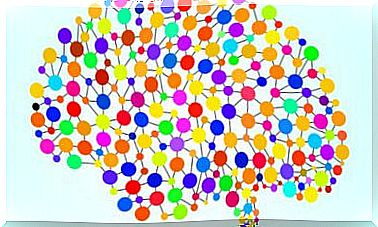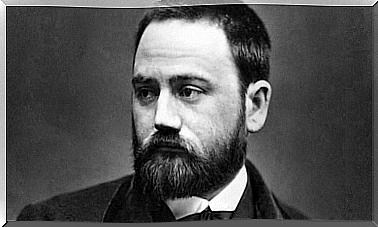Memento: The Importance Of Remembering

Memento is a 2000 film directed by Christopher Nolan, as in the case of Origin and other films by the filmmaker, Memento has its roots in psychology. It is a film that makes the viewer a participant in the disease suffered by the protagonist.
In Memento , the protagonist suffers from anterograde amnesia, that is, a type of amnesia that prevents him from storing new memories. But not only that, but he suffers from post-traumatic stress disorder that, together with amnesia, makes his day to day very difficult.
Leonard, the protagonist, was a married man who worked for an insurance company investigating possible fraud; his whole life was normal until he witnessed the rape and murder of his wife. From that moment on, he suffers a trauma and a blow to the head that will make his life change radically; Unable to store new memories, the only idea on his mind is to find his wife’s murderer and get revenge.
Memento is a psychological thriller that places us in the protagonist’s point of view, since the film is shot upside down: it begins with the ending and, little by little, we will connect the dots until we discover what led to that ending. The scenes alternate between black and white and color, the colored ones belonging to scenes from the past, while the black and white scenes go “forward”. At first, these scenes and this altered order can confuse us, we may not understand anything, but what is really sought in the film is for the viewer to make the effort to build memories from nothing, just like Leonard does.
The very title Memento means in Latin ‘I remember or remember’, so the need to remember and the incapacity of the protagonist are made explicit. What would a life be like without new memories?

Leonard is able to remember all his life before the traumatic event, also how to perform any daily action, but he cannot remember a person with whom he spoke a few days or a few minutes ago. For this reason, his body is covered in tattoos that involve remembering, that help him to put the pieces together in his mind. In turn, he is always accompanied by notes and a camera, to know if he knows the person in front of him or not.
This exercise of linking the present with the past, of putting the pieces of the puzzle together and trying to understand that ending that was presented to us in the first scene will be the one that we make the spectators who, like the protagonist, have no knowledge or memories of the story that we are witnessing. The alternation of scenes and colors, the notes of the protagonist and the reconstruction of the events will make everything make sense little by little.
Memory, identity and knowledge
What are memories? What is memory? Sure, answering these questions may seem very simple, but if we try to address them in depth, we will quickly realize that it is not as easy as it seemed at first. If we think about the history of philosophy, we realize that for many thinkers knowledge has been deeply linked to memory. Plato, for example, spoke to us of anamensis, that is, a reminiscence or remembrance that brings memories of the past to the present.
Plato believed in an immortal soul that came from the world of ideas and that, accidentally, was trapped in our human and mortal body without being able to remember the past. However, in some situations reminiscence appears, that immortal part recovers certain memories of the past.
Knowledge, philosophical knowledge, would be like a round trip, like crossing the river of life, reaching death and then returning with that wisdom; put aside that sensitive and material world and achieve that remembrance of the world of ideas.
The theory of reminiscence has been deeply treated throughout philosophy, in the same way, the knowledge-memory link has been one of the bases for many thinkers. Perception is a stimulus and, through anamensis, our immortal soul accesses the previous memory, that of the world of ideas.

If we move to a more everyday, more familiar plane, we will observe that the memories we store are not totally objective. The same event experienced by two different people will present differences in their remembrance, since subjectivity plays an important role in our memories. Ortega y Gasset has already talked about this, perspectivism maintains that all perception is subjective, we with our perception give meaning to things, therefore, knowledge will be linked to a point of view.
Following this line, we can say that memories are our own, personal and subjective. My memories are mine, of my experience and cannot be communicated. In the same way, our experiences make up the “I”, they are part of our identity. It is not surprising that many people, after suffering severe memory loss, have radically changed their personality, their “self”. If I don’t remember anything from my past, am I still me?
In Memento , the paradox is that the subject knows perfectly who he is, knows his past, knows everything about his “I”, but is unable to remember anything new. And that same game is the one that is posed to the viewer, just like in the film: not storing new memories can make us enter a kind of infinite loop, where we repeat everything over and over again.
Memento , living without memories
Leonard’s last memory is a traumatic event, an event that has ended his life as he knew it. Therefore, you must learn to store, in some way, these new memories; He does so through tattoos that help him carry out an exercise in connection, notes and photographs of the people and places he knows.

We all need a reason to live and Leonard has lost it, he can no longer carry on with his job, he has lost his wife and his life has taken a really dramatic turn, his new reason will be revenge, a kind of attempt to “get back” his previous life and everything that has been stolen from him. No one can give him back his memory, no one can give him back his wife, but he can take the life of the one who took everything from him and, somehow, live in peace again.
The question is that if Leonard cannot store new memories, how will he know that his plan has succeeded? Will he be able to be happy again if he does not remember that he took revenge on those who stole everything from him? Leonard establishes a routine, he must be very careful and methodical to be able to store new information out of his mind, storing it artificially, like when we save something on a computer or external memory.
His life will revolve around his illness and his desire for revenge, something that is not surprising because the last memory he has is the most tragic moment of his life. It is a subjective memory, loaded with emotions and the importance of that memory will make everything a nightmare, it cannot store anything new, but it also does not manage to “erase” the most tragic event.
Memento puts a truth before our eyes, but we cannot perceive it because the information is given to us fragmented, encrypted and as if we could not remember either. An entire exercise that invites us to reflect on perceptions and memories.









